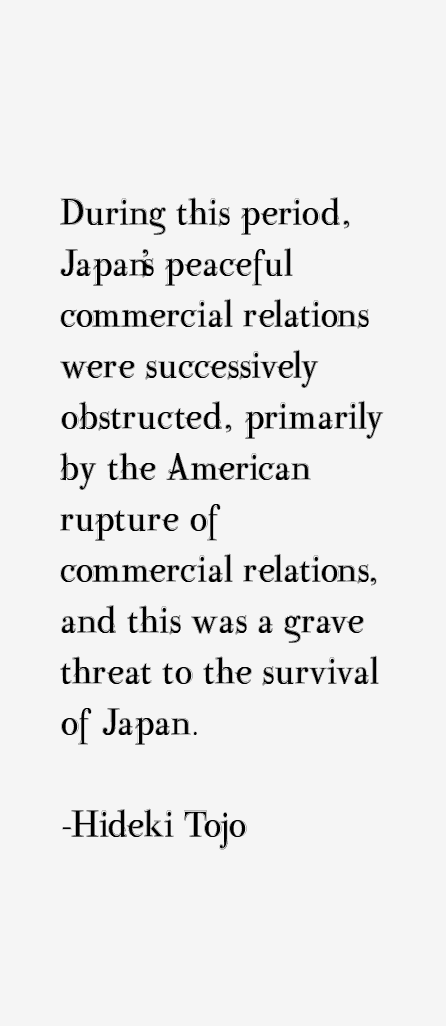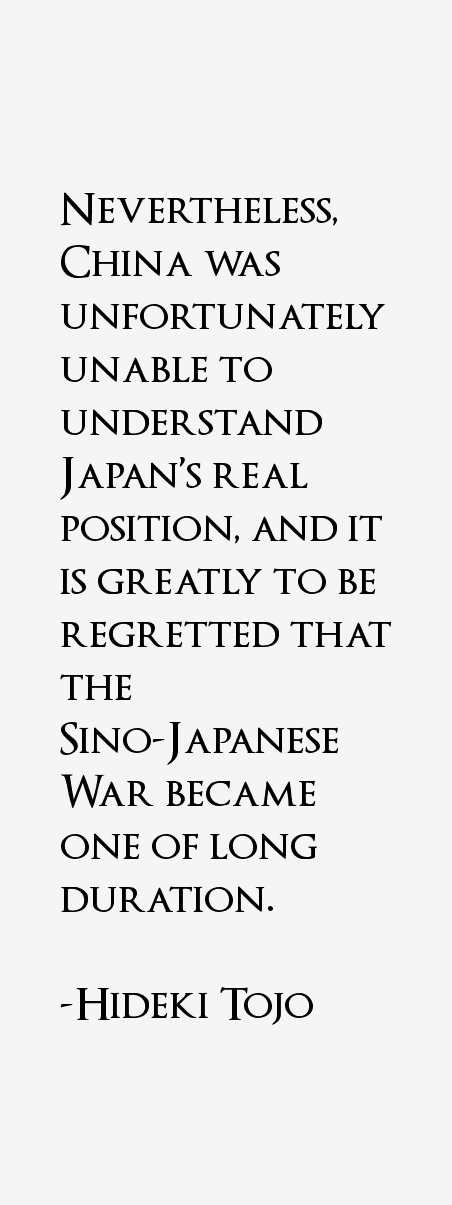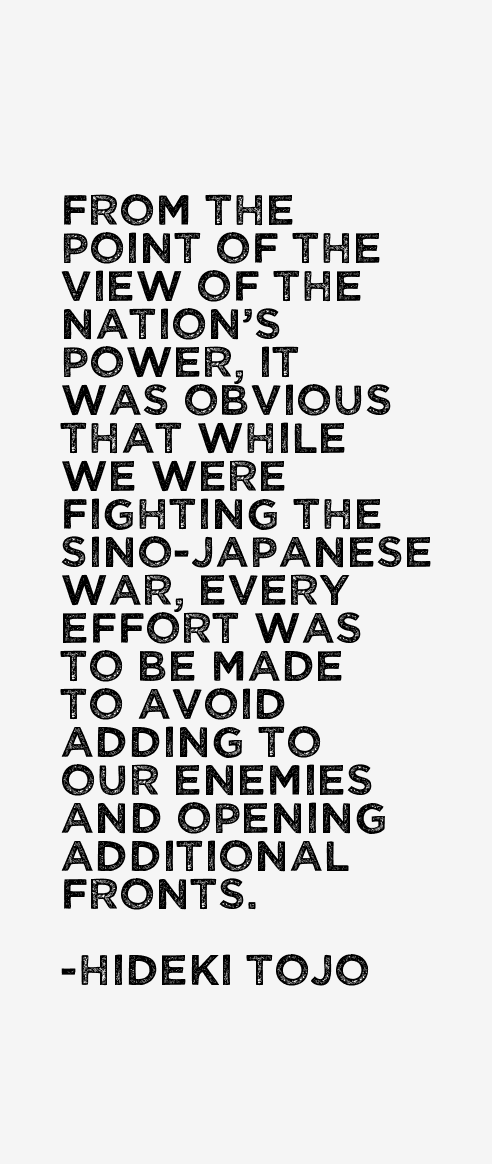Hideki Tojo Quotes & Sayings (Page 2)
Hideki Tojo quotes and sayings page 2 (soldier). Here's quote # 11 through 20 out of the 22 we have.

“During this period, Japan's peaceful commercial relations were successively obstructed, primarily by the American rupture of commercial relations, and this was a grave threat to the survival of Japan.”
“On October 18, 1941, I suddenly received a mandate from His Majesty to form a new cabinet. This was completely unexpected, and when I was summoned to the Imperial Palace I thought I would be questioned on the army's point of view.”

“Therefore, if one were to consider that there was virtually no possibility of success through the US-Japan negotiations, the military and economic pressures would only force Japan into further crisis if time were allowed to pass in vain.”

“Nevertheless, China was unfortunately unable to understand Japan's real position, and it is greatly to be regretted that the Sino-Japanese War became one of long duration.”
“The main American naval forces were shifted to the Pacific region and an American admiral made a strong declaration to the effect that if war were to break out between Japan and the United States, the Japanese navy could be sunk in a matter of weeks.”

“From the point of the view of the nation's power, it was obvious that while we were fighting the Sino-Japanese war, every effort was to be made to avoid adding to our enemies and opening additional fronts.”
“However, even during the preparations for action, we laid our plans in such a manner that should there be progress through diplomatic negotiation, we would be well prepared to cancel operations at the latest moment that communication technology would have permitted.”

“I would point out that the cultural advance of these people has been suppressed in the past and continues to be suppressed in the present by policies designed to keep them in ignorance.”
“Throughout that period, Japan had made honest efforts to keep the destruction of war from spreading and, based on the belief that all nations of the world should find their places, had followed a policy designed to restore an expeditious peace between Japan and China.”
“In dealing with the China problem, the British and American side, which had particularly strong interests in China, should have based its judgments about the origins of the problem on direct observation of the actual circumstances at the time.”
Hideki Tojo Quotes Rating
No Ratings Yet
Leave A Comment
























